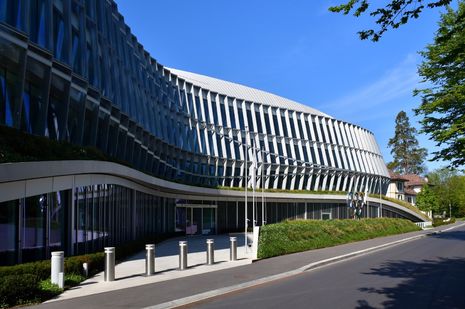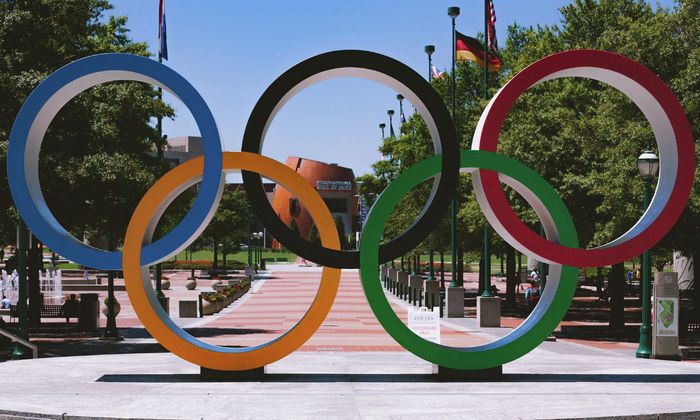IOC stands firm on ‘Rule 50’: a gold-medal decision?
Liam Kline argues that the International Olympic Committee (IOC) should be commended for respecting the wishes of its athletes in upholding ‘Rule 50′, which disallows protest at the games, after an IOC survey found the majority of athletes wish to avoid on-field demonstrations in Tokyo

The International Olympic Committee (IOC) recently conducted a survey amongst athletes as to whether its ‘Rule 50’ should change ahead of the upcoming Tokyo Olympic Games. With athlete activism becoming an increasingly salient part of sport, the IOC sought to revise its guidelines around protests ahead of the much-anticipated event.
A total of 3,547 athletes were asked, with 67% wishing to keep the medal podium free of protests and 70% keen to avoid on-field demonstrations. In light of this response, the IOC maintained their stance on the ban of protests by athletes and will now consider sanctions for those who breach this decision.
The directive in question - ‘Rule 50’ of the Olympic Charter - purports to “protect the neutrality of sport and the Olympic Games”, stating that “no kind of demonstration or political, religious or racial propaganda is permitted in the Olympic areas”. But the IOC does recognise that athletes are entitled to “express their views” through the means of press conferences, team meetings and social media.
There have been times throughout history, however, where the IOC have accommodated subtle displays of political message on the big stage; for instance, Cathy Freeman’s victory lap at the 2000 Sydney Olympics, with the Aboriginal and Australian flags cloaked on her shoulders as a symbol of hope for reconciliation. At the 2016 Rio Olympics, silver medalist Feyisa Lilesa crossed his wrists as a sign of support for his Oromo people facing displacement by the Ethiopian government. The Committee opted against imposing sanctions on either competitor. Therefore, the IOC have historically displayed a propensity to side with athletes on political issues, even when they seemingly breach ‘Rule 50’.
In spite of these notable circumstances and criticism from various athlete associations - Global Athlete has branded the IOC’s approach as “archaic” and the “sign of an outdated sport system” - the athletes stand in opposition to an organisational endorsement of political expression, and this collective voice must be taken into consideration. By offering this survey, the IOC have demonstrated flexibility and a corresponding sense of alertness towards the demands of their athletes.
“...is it possible to spark meaningful social change behind closed doors?”
Elsewhere, the Australian Olympic Committee (AOC) carried out a survey in August 2020 on the guidance of ‘Rule 50’, in recommendation to the IOC Athletes’ Commission. Pooling the responses of Olympians from different eras, the survey results found that almost 41% of all respondents said that the Games should not be a place where athletes express their views, while approximately 39% responded that it depended on the circumstances - both of which eclipse the 20% that outrightly believed the Games to be a suitable stage for political expression.
It is important to note that the AOC survey acknowledges a trending change in views over time. Despite roughly 85% of Olympians from the 1950’s siding against athlete activism, 34% of athletes from the 2010’s responded in favour of political expression alongside 47% under some circumstances.
“...the IOC could potentially do more harm than good by siding against the athletes.”
Meanwhile, the AOC survey went on to find that the way in which athletes express themselves largely aligns with the current ruling of the IOC. A slim 11% of all respondents believed that protests and rallies were an appropriate form of political expression, whereas 68% opted for talking with friends, family and peers, 32% donations and 29% posting on social media. Keeping athlete activism away from the Olympic stage and glaring cameras remained the consensus amongst the athletes.
Of course, this predominantly private form of protest raises its own concerns: is it possible to spark meaningful social change behind closed doors? The Premier League has actively integrated political message into its pre-match procedure, as well as introducing the ‘No Room for Racism’ action plan, the ‘take a knee’ campaign and also pledging further support for the ‘Kick It Out’ organisation. Premier League CEO Richard Masters last month recalled talking to players ahead of Project Restart and hearing that they wanted “to make a stand against the events in America last summer”. Masters went on to emphasise that the League “were happy to support the players”.
Likewise, in the days leading up to the NBA restart back in July 2020, proactive discussions between players, coaches and organisations swept through the league. A plan was formed between the Utah Jazz and the New Orleans Pelicans, in which both teams agreed to kneel in a show of solidarity during the national anthem of the opening game. In an interview with Sports Illustrated, NBA commissioner Adam Silver described players as “not one-dimensional people” who “can both be deeply concerned about [social] issues and at the same time perform their craft at the highest level”.
What the Premier League and NBA both have in common is a shared understanding between executives and players; the executives asked, the players answered. The IOC also asked, and the athletes then answered. Why should the IOC overrule the opinion held by the majority of their athletes? Although the magnitude of the Olympic platform may tempt calls for an organised display of political message, the IOC could potentially do more harm than good by siding against the athletes.
Politics and sport have never truly been mutually exclusive. Despite the IOC’s verdict for the Tokyo Olympic Games, the Committee has shown itself as open to conversation with current athletes, as well as prepared to revise the fundamental principles of the Games. The correlation between age and political attitude in the AOC survey hints that an alteration to ‘Rule 50’ may not be an unrealistic reality nor one that is too far away. As seen with Freeman and Lilesa, the IOC are able to conduct themselves in a manner that not only supersedes the supposedly “archaic” nature of its official ruling, but also values the judgement of athletes as a guiding rationale.
 Features / Should I stay or should I go? Cambridge students and alumni reflect on how their memories stay with them15 December 2025
Features / Should I stay or should I go? Cambridge students and alumni reflect on how their memories stay with them15 December 2025 News / Cambridge study finds students learn better with notes than AI13 December 2025
News / Cambridge study finds students learn better with notes than AI13 December 2025 News / Dons warn PM about Vet School closure16 December 2025
News / Dons warn PM about Vet School closure16 December 2025 News / News In Brief: Michaelmas marriages, monogamous mammals, and messaging manipulation15 December 2025
News / News In Brief: Michaelmas marriages, monogamous mammals, and messaging manipulation15 December 2025 Comment / The magic of an eight-week term15 December 2025
Comment / The magic of an eight-week term15 December 2025










